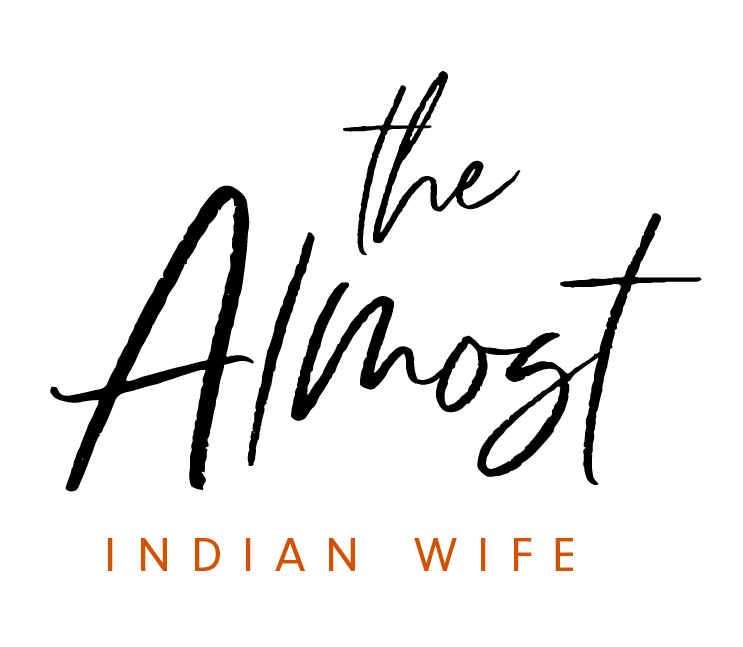Establishing Personal Space In A Multiracial Family
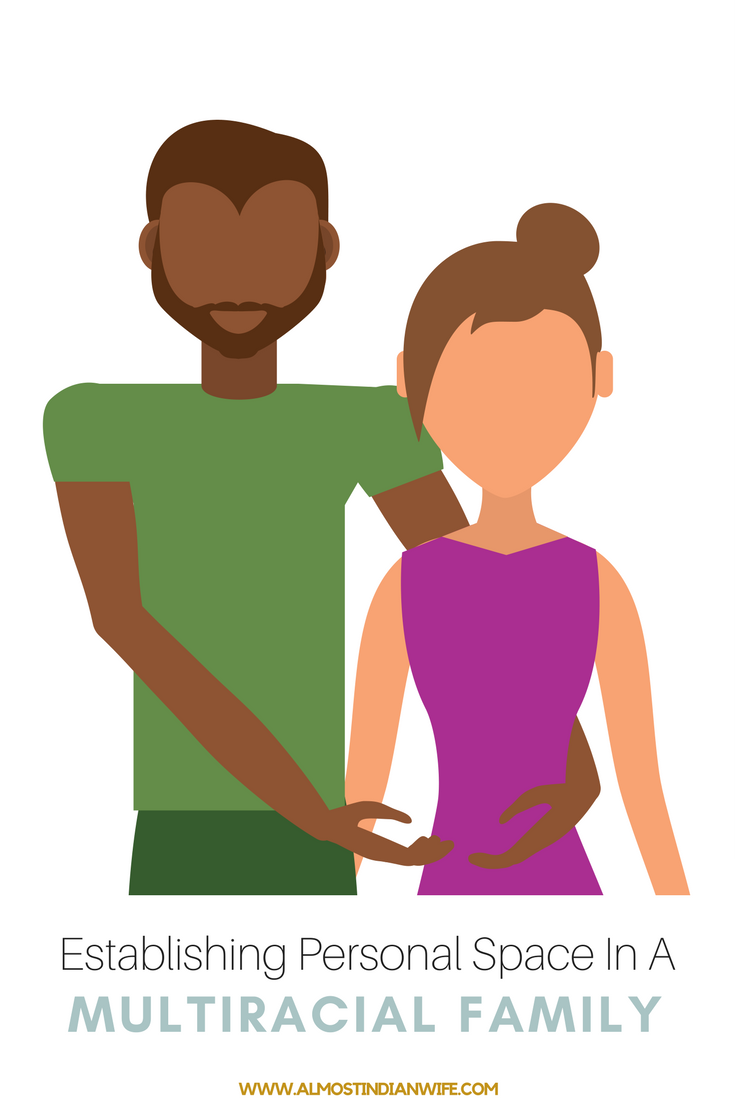 Have you ever experienced a moment of extreme personal space invasion? You’re standing in line at the bank and there's someone in front of you and behind you. While you leave a considerable amount of space in front of you, the person behind you keeps inching forward. Then they get so close, you can feel them breathing on your neck. You compensate by moving forward, but then you’re then invading the space of the person in front of you. They turn around and look at you.It’s not my fault!My husband experienced this in India a few years back. He was raised in the US but he's spent a few years living in India. He was sent to live there with his grandparents as a toddler and visited every few years as he was older. As much as he remembers how it is there, it always takes time to re-acclimate.There are over one billion people living in India...That’s right. Over one billion! With so many people, let’s just say personal space isn’t high on their list of concerns. My husband told me while he was in the city, people were constantly right next to him. They would get close enough that he would end up bumping elbows every five seconds. Instead of realizing they were too close, they seemed oblivious.He also told me he was always getting hugged and kissed by all of the aunties and uncles he met. Whether he knew them or not, everyone was very affectionate. This goes hand and hand with a lack of concern for personal space. It’s not that they don’t understand personal space, it just doesn’t bother them. They’re comfortable being close to each other because that’s what they’ve always known.This is one of many reasons my son Liam is born for Indian culture. He would happily fit into the streets of India, loving every time he bumps into a stranger.
Have you ever experienced a moment of extreme personal space invasion? You’re standing in line at the bank and there's someone in front of you and behind you. While you leave a considerable amount of space in front of you, the person behind you keeps inching forward. Then they get so close, you can feel them breathing on your neck. You compensate by moving forward, but then you’re then invading the space of the person in front of you. They turn around and look at you.It’s not my fault!My husband experienced this in India a few years back. He was raised in the US but he's spent a few years living in India. He was sent to live there with his grandparents as a toddler and visited every few years as he was older. As much as he remembers how it is there, it always takes time to re-acclimate.There are over one billion people living in India...That’s right. Over one billion! With so many people, let’s just say personal space isn’t high on their list of concerns. My husband told me while he was in the city, people were constantly right next to him. They would get close enough that he would end up bumping elbows every five seconds. Instead of realizing they were too close, they seemed oblivious.He also told me he was always getting hugged and kissed by all of the aunties and uncles he met. Whether he knew them or not, everyone was very affectionate. This goes hand and hand with a lack of concern for personal space. It’s not that they don’t understand personal space, it just doesn’t bother them. They’re comfortable being close to each other because that’s what they’ve always known.This is one of many reasons my son Liam is born for Indian culture. He would happily fit into the streets of India, loving every time he bumps into a stranger.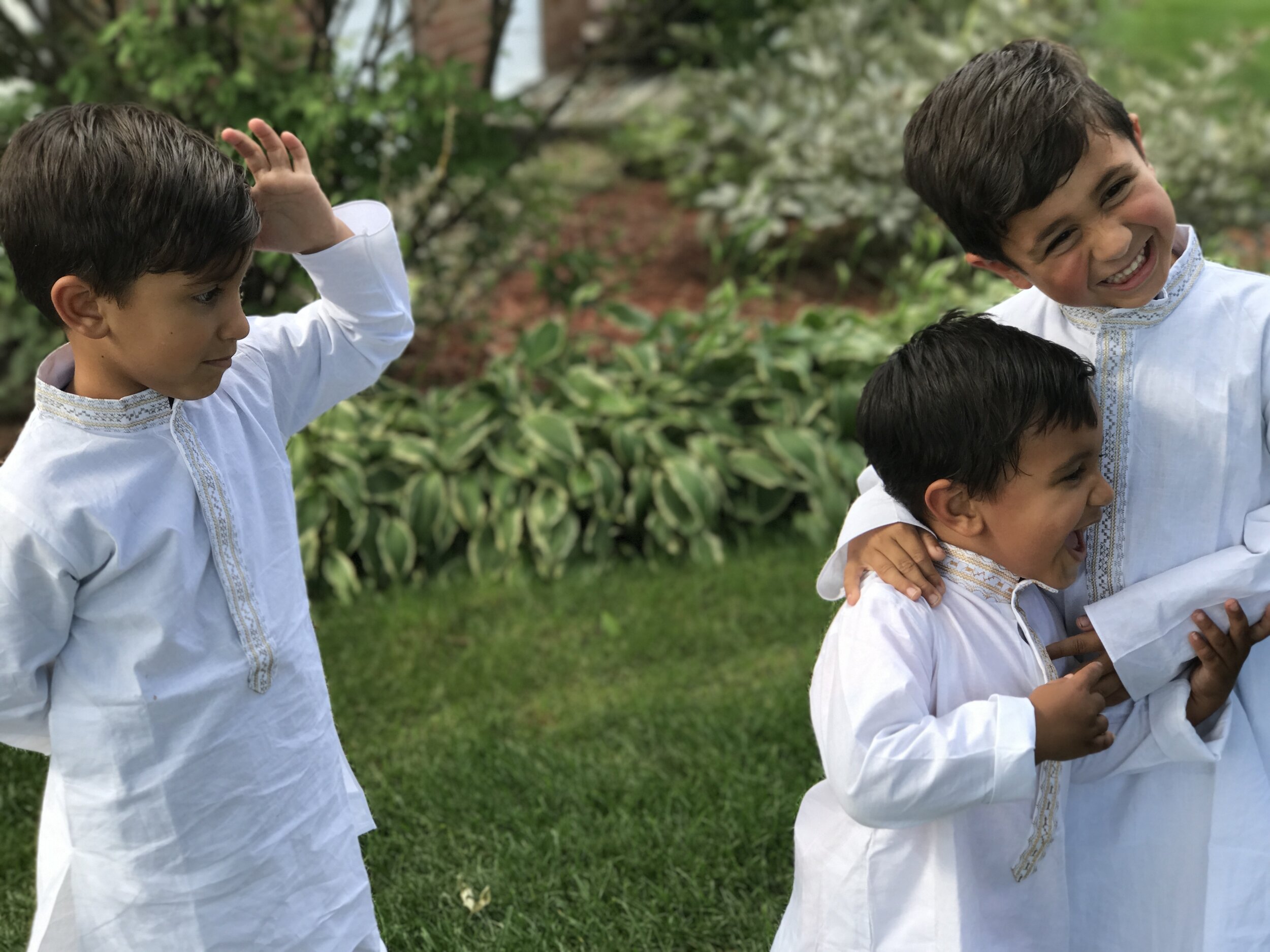 However, my son Levi is the complete opposite. He loves physical affection from his daddy and me, but other people are a different story. Everyone knows he's picky on who he decides to hug and kiss. He even has a Troll's blanket that says "No Hugs," just in case he needs to reference it to people!Levi's in a tricky position.As a part of our little multiracial family, he's a part of a culture that expects physical affection and a side that's not about it.Deep down he loves being hugged and squeezed by people that love him, it just has to be on his own time. My husband and I don't ever want to force him to show physical affection to anyone, but we can see the struggle he goes through when he's faced with it.
However, my son Levi is the complete opposite. He loves physical affection from his daddy and me, but other people are a different story. Everyone knows he's picky on who he decides to hug and kiss. He even has a Troll's blanket that says "No Hugs," just in case he needs to reference it to people!Levi's in a tricky position.As a part of our little multiracial family, he's a part of a culture that expects physical affection and a side that's not about it.Deep down he loves being hugged and squeezed by people that love him, it just has to be on his own time. My husband and I don't ever want to force him to show physical affection to anyone, but we can see the struggle he goes through when he's faced with it.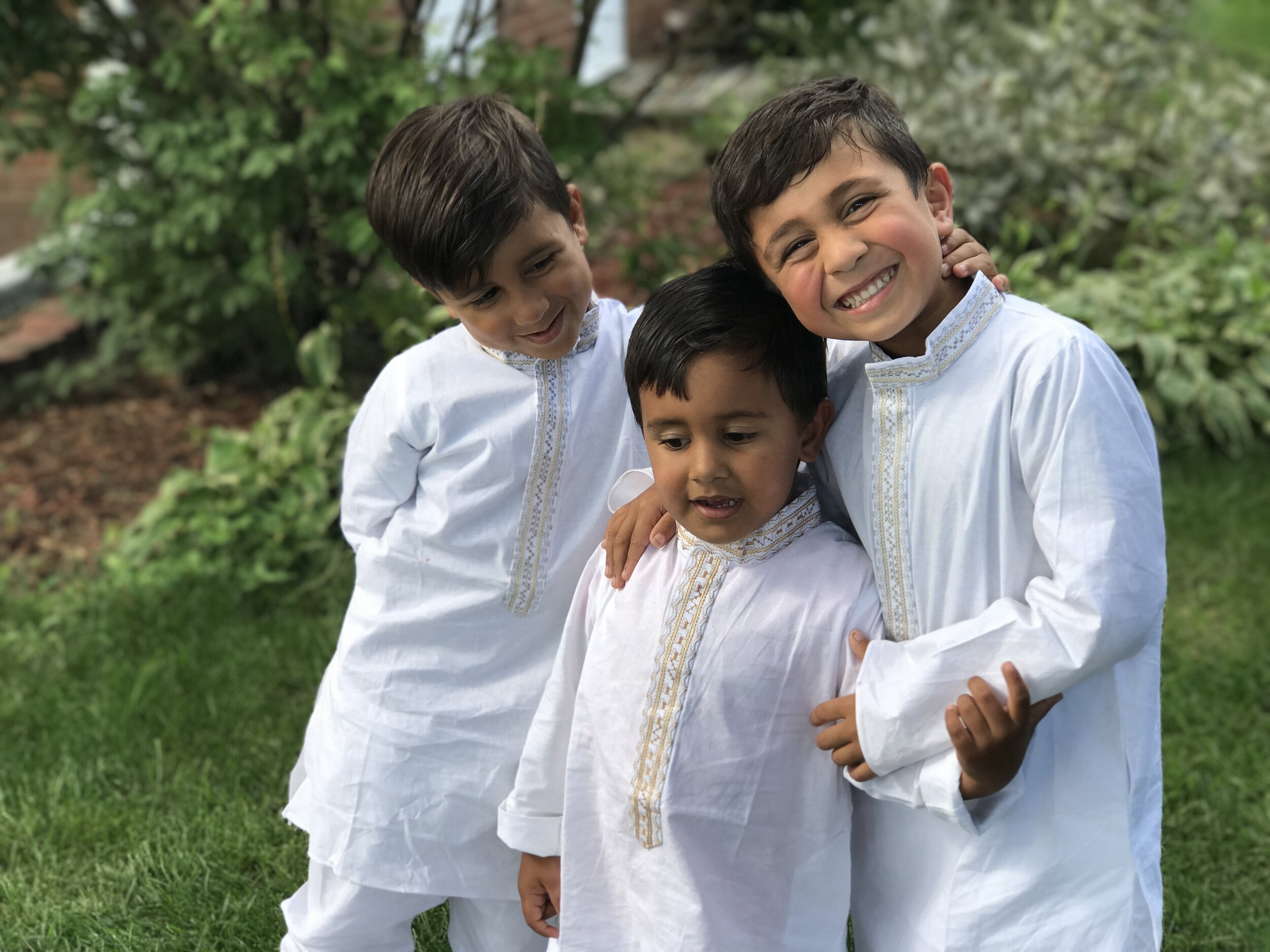 This is one of many moments like this he's going to face. As a biracial child, he's going to be at these little intersections where both of his cultures tell him to do something else. At the end of the day, I don't want him to stress out over which culture he has to choose to listen to. I want him to listen to his own heart and find out what's right for him.His daddy and I will love him regardless of what he chooses. Biracial children have a lot of pressure on their shoulders and I want him to know we love him for who he is, not which culture he identifies with more.
This is one of many moments like this he's going to face. As a biracial child, he's going to be at these little intersections where both of his cultures tell him to do something else. At the end of the day, I don't want him to stress out over which culture he has to choose to listen to. I want him to listen to his own heart and find out what's right for him.His daddy and I will love him regardless of what he chooses. Biracial children have a lot of pressure on their shoulders and I want him to know we love him for who he is, not which culture he identifies with more.
Sarla In The Sky: Kid Review Addition
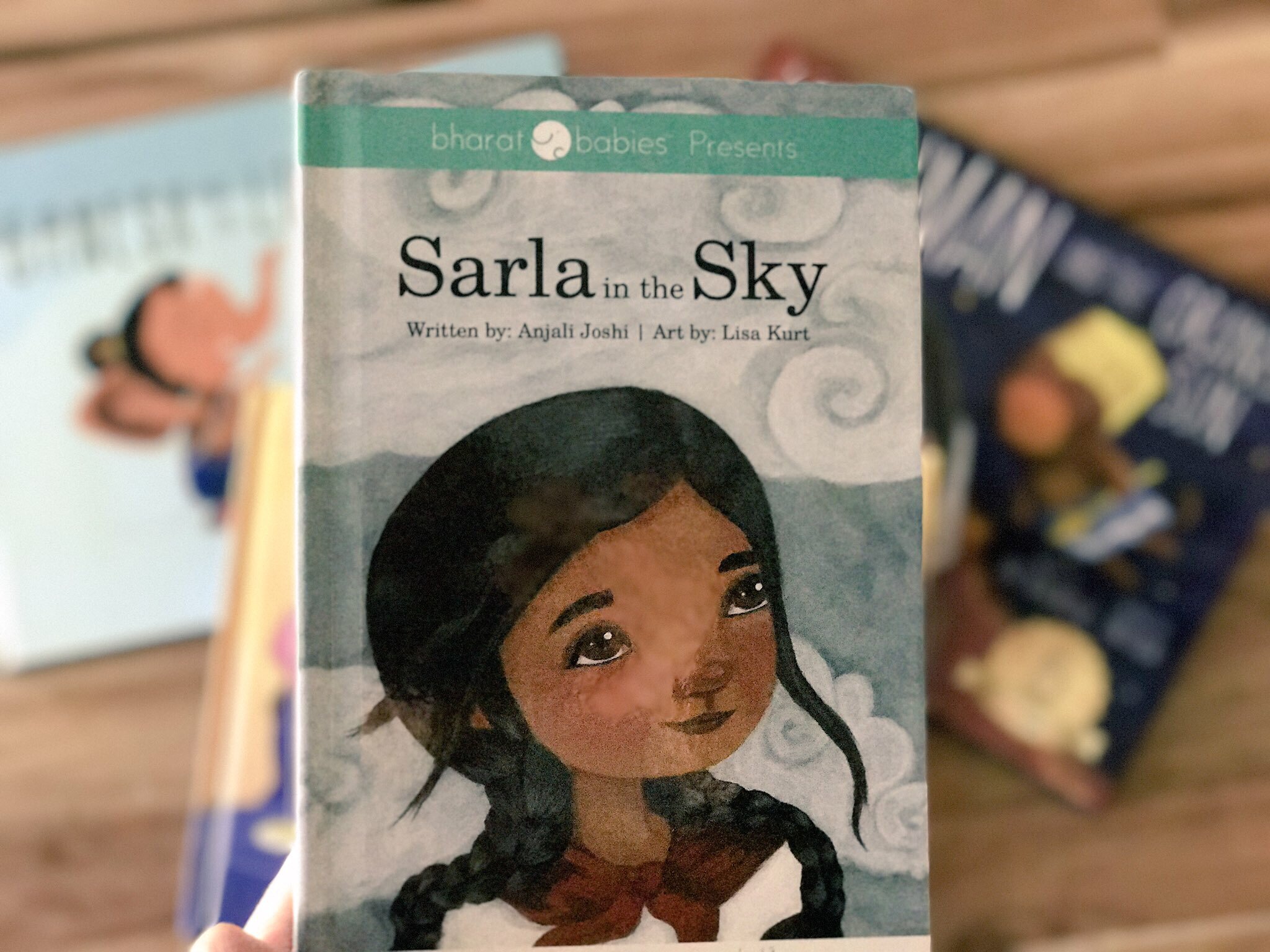
This post is sponsored by Bharat Babies. As always all opinions are my own.
The Best Part Of Women's History Month
Throughout the month of March, my kids and I have been diving into history. My boys have learned about so many influential women in history. They've learned about Helen Keller's determination, Sacagawea's adventures, Harriet Tubman's courage, and Mother Theresa's compassion.I love watching their little eyes light up as we dive into new adventures. This month has taught them so many things! They know that women can do anything they set their minds to and have even seen how courageous women have changed our world for the better.The best part is how it's inspired them!
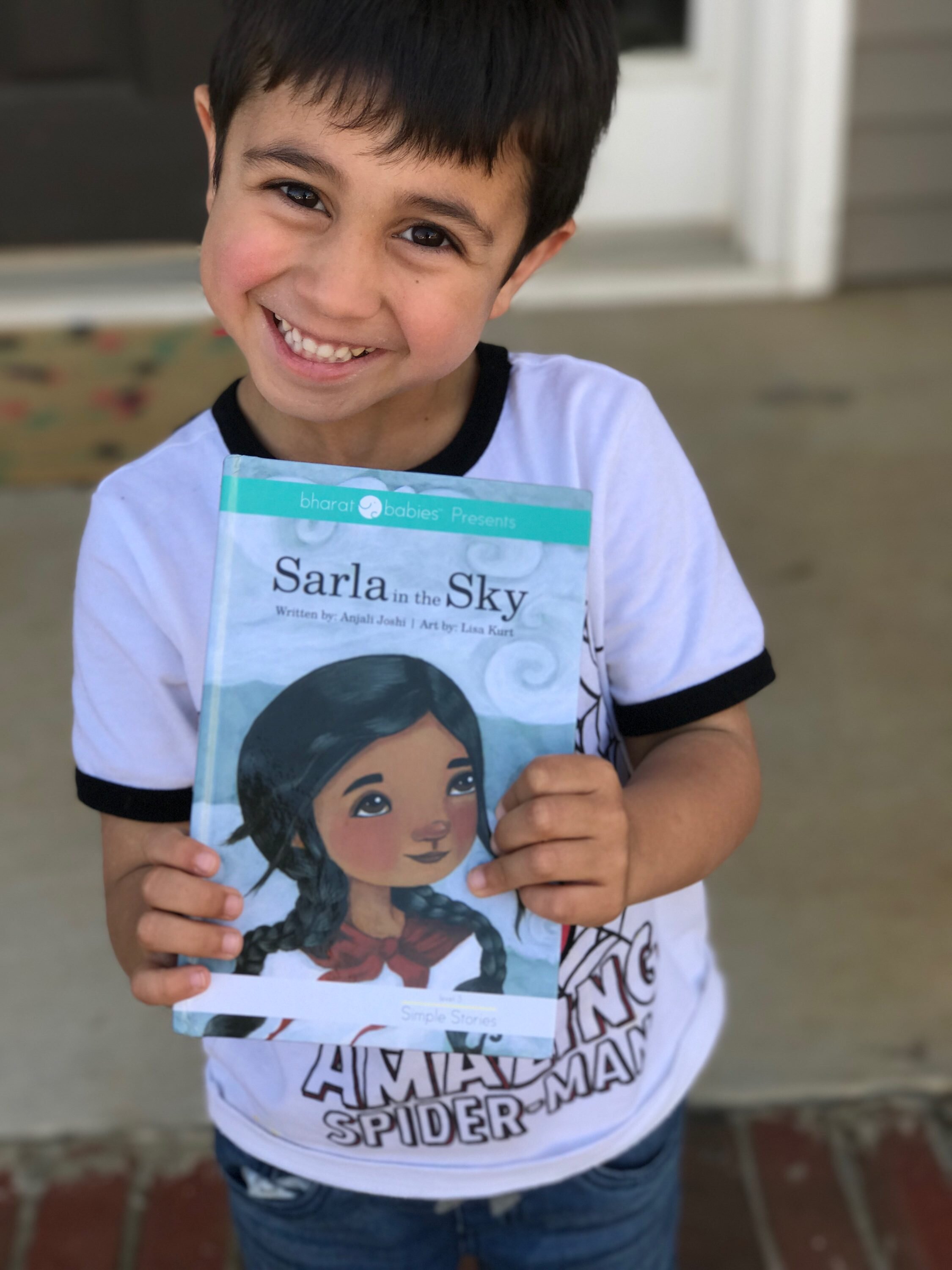
Let's Meet Sarla!
One of our favorite women in history is Sarla Thakral. She was the first Indian women to become a pilot! Her story is beautiful because despite all odds, she flew!Women have been told throughout history that they aren't as good as men. Social standards have told them that some things should be left for men. Sarla was a woman and living in India. Women are still struggling for equality in different parts of India so imagine how it must have been for her years ago!I was so excited when I found our new book, Sarla In The Sky. I've been obsessed with Bharat Babies' Books for a while now and I couldn't wait to get my hands on their new young reader book!My kids were just as excited! They eagerly checked the mail every day while we waited for it to arrive.
A 5 Year Old's Book Review!

Fun Facts About Sarla Thakral
After reading Sarla In The Sky, my kids wanted to learn more about her and her life. We had learned so much throughout our new book and were thirsty for more! Here are a few of our favorite facts!Sarla's plane was called the Gypsy MothShe had to log thousands of flight hours to get her pilot's licenseShe was born in 1914She was 21 when she got her pilot's licenseShe flew the Gypsy Moth in a sareeShe had a daughter
Learn about Sarla's story on your own and pick up a copy of Sarla In The Sky today!
Culture Clash Wednesday #2 Eating With Your Hands

